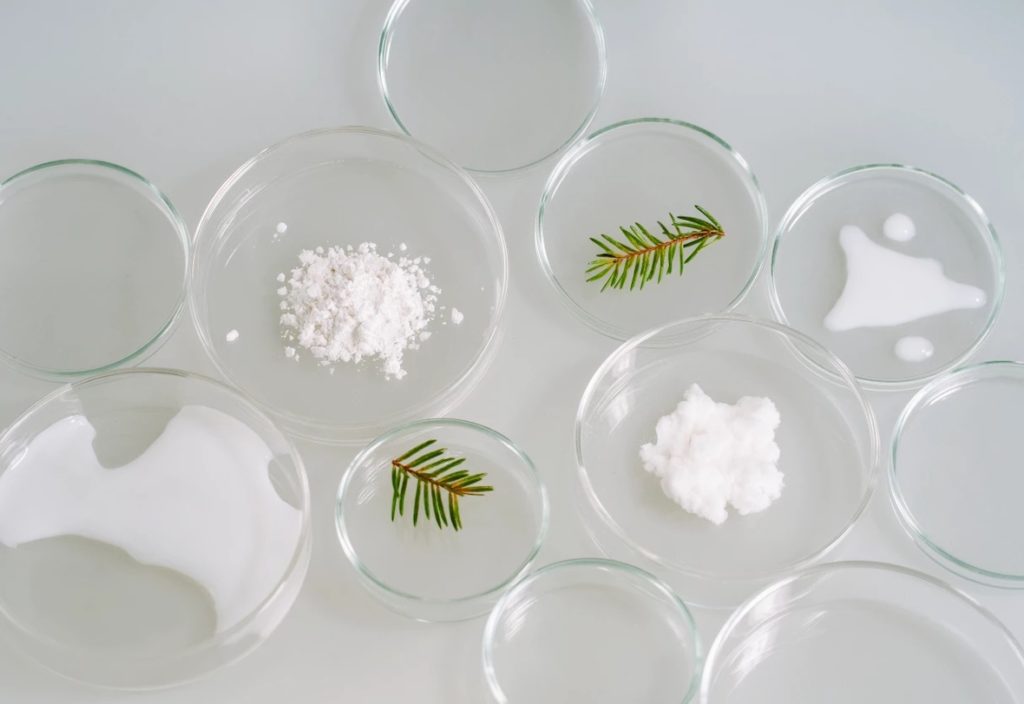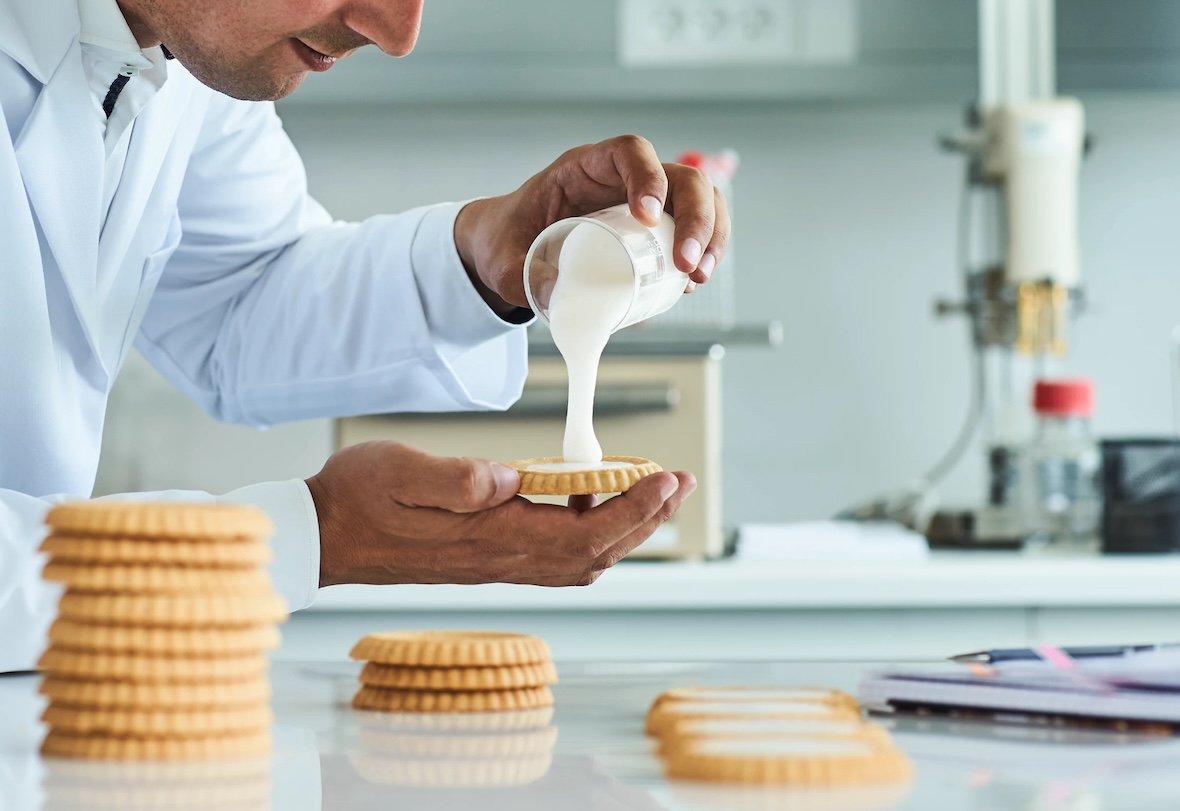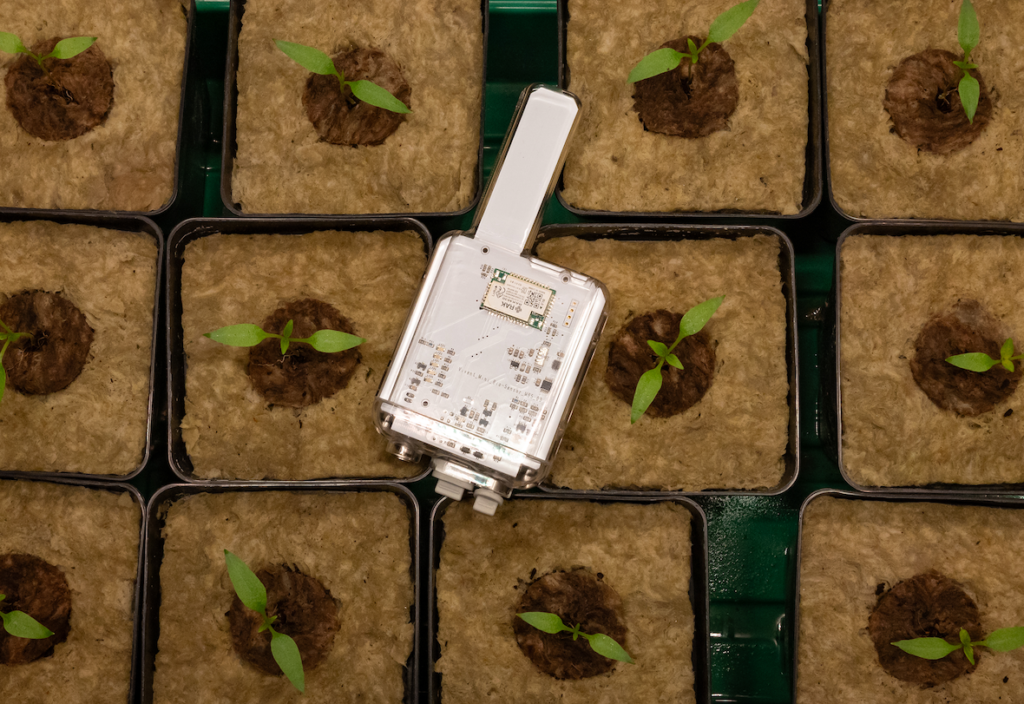
Fribourg’s Seprify enters commercial phase with first major customer Oterra
17 November 2025
 Oterra, a leading supplier of natural colors and color solutions for the food and beverage industry, and Seprify have announced a strategic commercial partnership to market a plant-based white coloring that can replace titanium dioxide (TiO₂) in food and beverage applications. | © Seprify
Oterra, a leading supplier of natural colors and color solutions for the food and beverage industry, and Seprify have announced a strategic commercial partnership to market a plant-based white coloring that can replace titanium dioxide (TiO₂) in food and beverage applications. | © Seprify
Seprify has signed its first commercial agreement to bring its plant-based white pigment to global food markets.
Cleantech start-up Seprify has entered its commercial phase through a strategic agreement with Denmark’s Oterra, a global leader in natural food color solutions. The partnership follows two years of joint testing across more than 15 food applications and marks the market debut of Seprify’s bio-based alternative to titanium dioxide.
Founded as a spin-off of the University of Fribourg and the University of Cambridge and now based at the Marly Innovation Center (MIC), Seprify develops high-performance functional materials derived from cellulose. The company’s proprietary extraction technology produces particles inspired by natural ultra-white biological structures, enabling intense light scattering and a bright white appearance without relying on synthetic ingredients.
A natural, scalable alternative to titanium dioxide
Seprify’s first commercial product is a cellulose-based white pigment designed to replace titanium dioxide (TiO₂), a widely used additive facing stringent regulatory pressure in several regions. Produced from FSC-certified, renewable virgin wood pulp, the pigment is nano-compliant, food-safe and estimated to generate up to 80% fewer CO₂ emissions than traditional TiO₂ production.
Its performance and versatility make it suitable for a broad range of food applications, including bakery glazes, confectionery coatings, dairy alternatives, beverages and creamers. The technology also offers advantages in terms of safety and sustainability, key priorities for global food manufacturers.
Scaling production from Fribourg to Europe
Over the past two years, Seprify and Oterra have conducted extensive formulation trials to validate the pigment’s performance across multiple product categories. With the transition to a commercial agreement, Oterra becomes Seprify’s first publicly announced customer and will begin integrating the cellulose-based pigment into its global portfolio of natural color solutions.
The agreement signals a broader shift toward sustainable ingredient innovation and positions Seprify for accelerated market adoption. Beyond food and beverages, the Fribourg start-up is advancing discussions with partners in pet food, cosmetics, nutraceuticals and consumer goods.
Having reached production readiness, Seprify plans to begin large-scale manufacturing in 2026 through European toll manufacturers, with the objective of scaling from hundreds to thousands of tons annually. More than 100 companies are currently testing its materials, including IKEA, which is evaluating cellulose-based pigments for future furniture applications.

